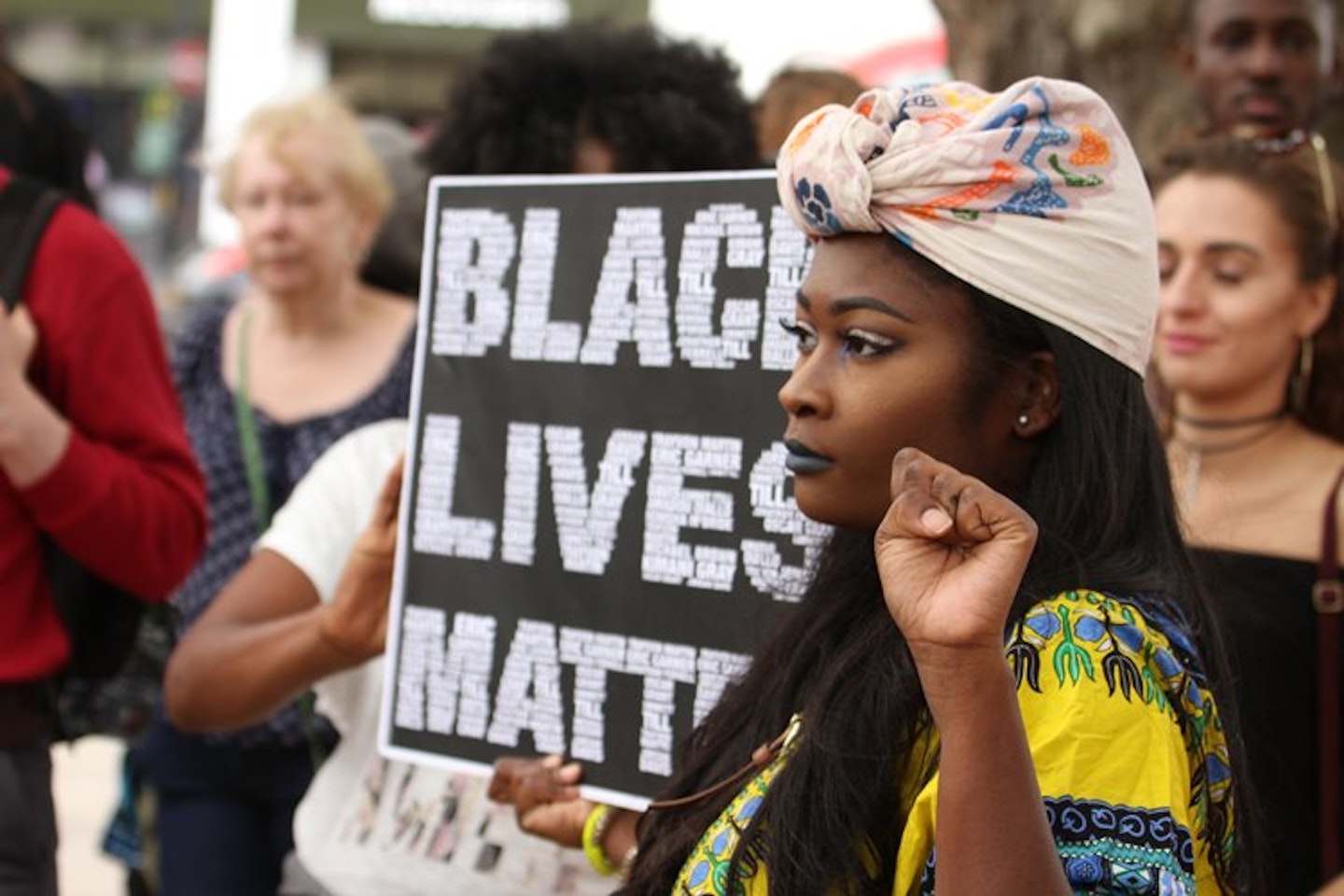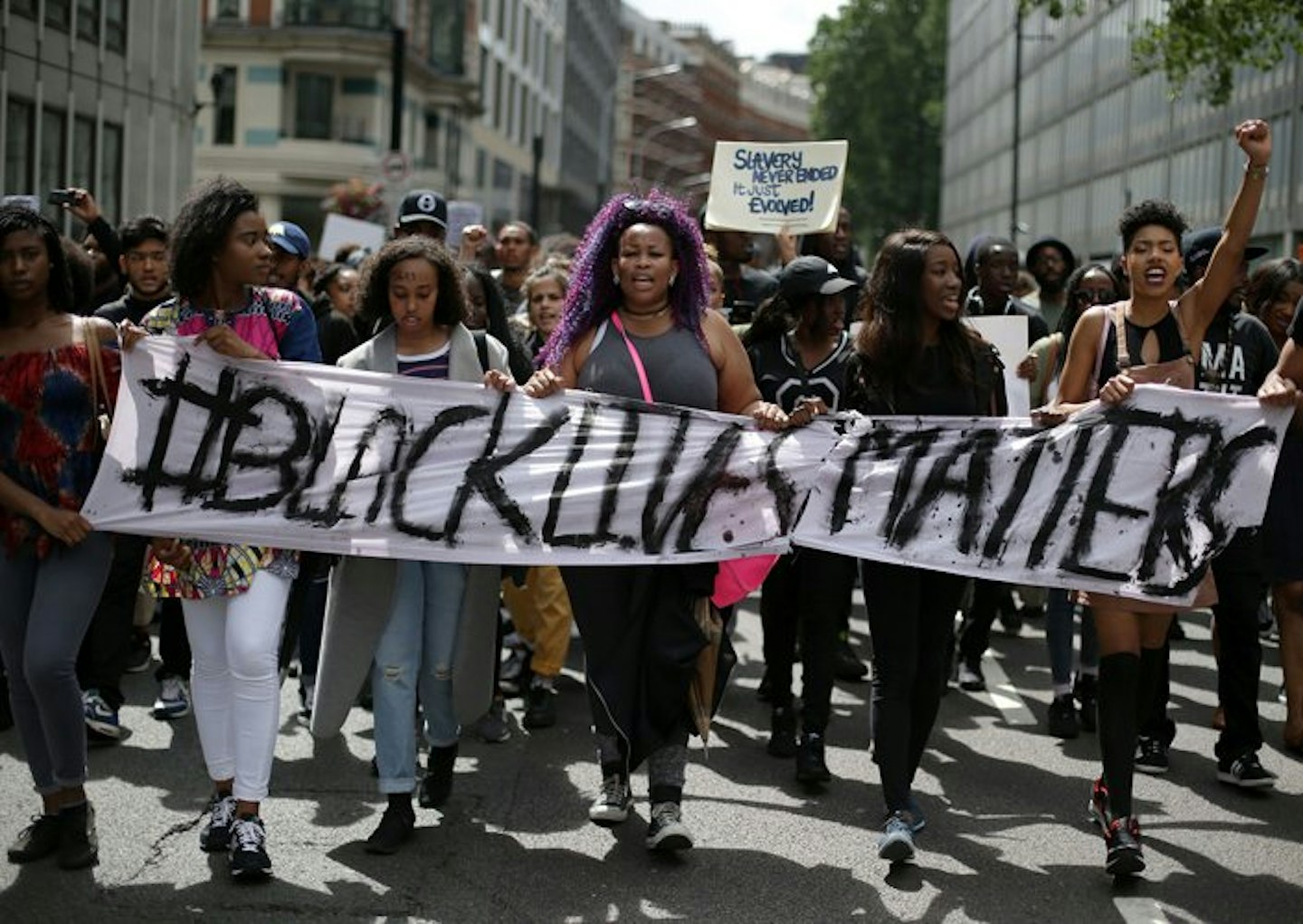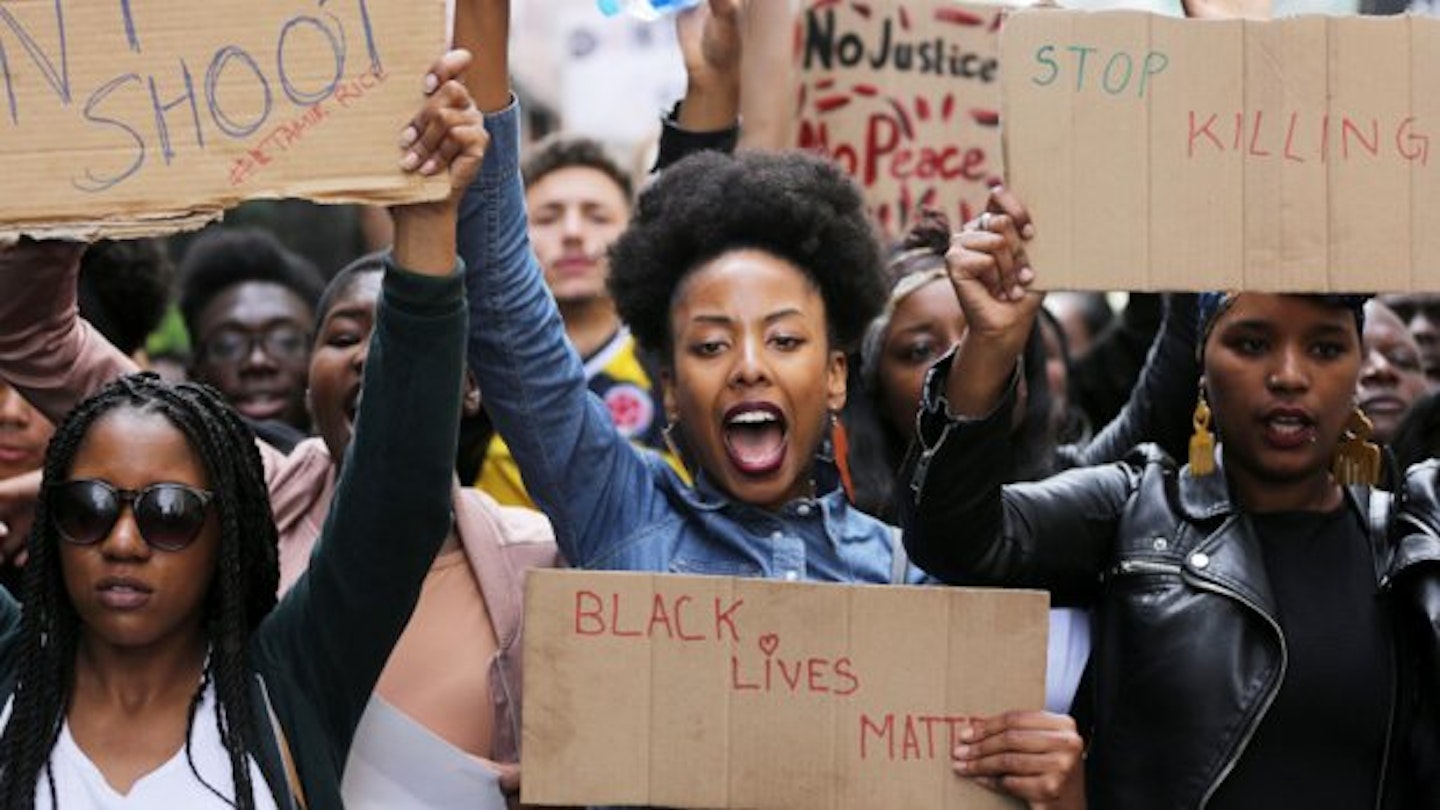When it comes to British politics, 2016 was – to put it mildly – a pretty big year. We’ve found ourselves with a new Prime Minister, a (failed) Labour Party coup to attempt to oust Jeremy Corbyn from power, and the defection and subsequent reshuffling of most of the Shadow Cabinet. Zac Goldsmith lost the London Mayoral race and subsequently his own Richmond seat, and most horrifyingly of all, Jo Cox became the first Member of Parliament to be murdered in 25 years. Her killer? Thomas Mair, a man who later gave his name as ‘death to traitors, freedom for Britain’ in court.
Then there’s the big one, the ‘political earthquake’ (to quote ex-then current-then ex-UKIP leader Nigel Farage) that completely shook up the political landscape in this country: Brexit. In the old days before the campaign began for the U.K to leave the European Union, people joked that the portmanteau for ‘British Exit’ sounded like a shit breakfast cereal. No-one is laughing now, are they? The drawn-out, aggressive and toxic campaign was filled with lowlights, from baseless statements about rerouting E.U. money to the NHS (£350 million that is yet to be seen), to people on the left offering bizarrely uncritical analysis of the EU in an attempt to convince their peers to vote Remain. We even had Bob Geldof and Nigel Farage yelling at one another with megaphones in the middle of the Thames, on their own mortifyingly embarrassing Leave and Remain boats.

Days before the vote however, pro-immigration MP Jo Cox’s murder was a painful but perhaps inevitable culmination of the hatred, a hatred that many who felt the racial tension bubbling around them expected. A Member of Parliament was dead because she supported people seeking asylum, and nothing can change that.
This is where we are now, as we enter 2017. From a personal point of view, Cox’s murder brought the situation our country had found itself in into sharp focus. If I’m being honest, I assumed things would be awful but that it would be business as usual, with black and brown bodies on the frontline of people’s aggression. Naïvely, I did not imagine the fury of racists would extend as much as it has to white immigrants, or that it would be white people killed for their allyship. But, if the referendum was about one thing it was about immigration, and fears about immigration are ultimately about race and nationalism.
For better or worse, Brexit has forced people in the United Kingdom to discuss race like never before. But Brexit has also been a catalyst for not just talk, but action. 2016 might have been the year of Brexit, but it was also the year of Black Lives Matter finally coming to the U.K.
In comparison to our American counterparts, we historically just haven’t addressed our own relationship with institutional racism anywhere near as much – despite the ongoing legacy and impact of the British Empire. Today, many people of colour will testify to the fact racism in Britain is insidious. fuelled by microaggressions, and the vote to Leave has brought many of those tensions to the surface.
Three years after its inception, the Black Lives Matter movement in the United States continues to be as divisive as ever. Protests, marches and riots continue. Journalists write damning condemnations of both the movement and its ‘All Lives Matter’ and ‘Blue Lives Matter’ counterparts, and American football player Colin Kaepernick’s continued decision to ‘take a knee’ when the U.S. National Anthem is played has added an extra spark to an already charged debate. Alongside Donald Trump’s horrifying ascent to power, and the ongoing backdrop of police shootings that continually leave African Americans dead, there’s one thing it seems everyone can agree on: Black Lives Matter, matters. It’s no wonder then that the aftermath of Brexit was the catalyst for so many people in the U.K. – especially young people – to politcise themselves in new ways. Black Lives Matter UK’s first action was only weeks after the Brexit vote, something that didn’t feel like a coincidence.
Speaking to activist Natasha Nkonde, who has been organising with the Black Lives Matter movement here in the UK, it was clear she agrees: catalyst is the word, she told me. ‘This year, post-Brexit, you saw a whole load of protests that were quite spontaneous. Young people especially began organising themselves, and it wasn’t all London-centric. Most of the BLM UK organising has been happening outside of the city.’

But how exactly did BLM UK come to be? According to Natasha, ‘it was to do with a big anti-racist organising meeting. A lot of the recent stuff that’s happened has come out of that, and the meeting was called immediately after Brexit. I think that was because people were scared, and there was just nowhere to hide about the state of the country we live in. I don’t think you could be like ‘this isn’t that racist of a country’ anymore. Prior to people organising under the BLM banner, we had organising under things like London Black Revs, or Black Dissidents, or elsewhere. But there was a real urgency in coming together then, and a big part of that was in reaction to the rise of street racism. That was a really scary stat going around, that there was a 58% rise. I think people were just ready.’
The stats post-Brexit have been more depressing and terrifying with every passing month. While hate crimes peaked in the week following the vote, things haven’t exactly calmed down since. Individual incidents of Muslim women having their hijabs pulled off, or Polish people violently hurt after speaking their native language in public have been horrifying. The sharp post-Brexit increase might have declined since August, but overall hate crimes are up 19% in comparison to last year – with 79% of the increase down to racist incidents. Speaking to Natasha, it was clear the rise in hate crime is linked to the U. K’s tendency to position itself as ‘better’ than the U.S.A or our neighbours in France. Despite this, ‘there’s a generation of black activists who are seeing through that due to their experiences of endemic inequality.’
While Brexit may have given momentum to a new form of direct action, black British activism, Natasha stressed, is not new. Perhaps one of the loudest, long-term unifying voices in the U.K has been that of the United Families & Friends Campaign, a coalition of people whose relatives died in police, prison and psychiatric custody that was established in 1997. While not all the families nor the victims are black (although it was founded initially by and for black families), the UFFC does not shy away from linking racism and classism to the deaths they are looking to get justice for. Well-known black British activists like Marcia Rigg (whose brother Sean died in Brixton police station in 2008) speak year on year, and this year the campaign has been supported by BLM UK.
Every year the UFFC hold a rally and procession at the end of October, from Trafalgar Square down Whitehall, to protest the deaths of their loved ones and ask the government for answers. In the wake of Black Lives Matter UK’s formation and the general political climate, you’d be forgiven for assuming that this year’s rally would be rammed, or at least bigger than usual. That didn’t seem to be the case. Perhaps, despite the new status quo, the links aren’t as clear as many of us would hope. It’s obvious that Brexit woke people up to the xenophobia and racism that many racists were not acting upon until the freedom of June’s vote to Leave. But if we are going to make any solid change, it’s important to recognise the multitude of ways racism affects black and brown bodies in this country. The rise in street hate crime, the lack of police accountability when people die in their custody, the hate spewed across newspaper front pages – all these things are connected.
Still, there are people looking at the links and trying to make them more obvious. Movement for Justice, a campaign to close down the notorious Yarl’s Wood detentioncentre, explicitly points out the many oppressive factors that lead to vulnerable women being detained indefinitely by the government. It’s not as simple as only xenophobia or sexism leading to the abuse of women at Yarl’s Wood, but a combination. Straight up racism is a reason as to why the uproar against Yarl's Wood is not as loud as it should be – despite damning evidence. Alongside this, factors like homophobia and explicitly the tendency to disbelieve the queer sexuality of bisexual women means some asylum seekers aren’t considered ‘lesbian enough’ by the government, and are subsequently denied the right to remain. Similarly, direct action group Sisters Uncut’snational action in November explicitly focused on securing secure funding for BME survivors of domestic violence who find it difficult to access specialist services, and the ways migrant women with no recourse to public funds can find it near-impossible to access those few domestic violence services that are left.
For many black people, Brexit wasn’t an opportunity to suddenly ‘see’ racism, but a chance to react to years of inequality. The links might not be fully seen all the time, but they are, perhaps, getting clearer. I’d like to think that Black Lives Matter UK’s intersectional focus and insistence on looking beyond police violence at things like the environmental racism implicit in climate change will go some way in helping this. BLM UK received some criticism from people of all races for their action shutting down London City Airport to protest the fact it’s people of colour in the global South who will suffer most from climate change. I’ll be honest – at the time, I felt conflicted about if it was the best course of action to divert from the ‘main’ message so early into BLM UK’s political life. Why not wait, I wondered, for a few months so people could get used to the general Black Lives Matter banner, before giving them new things to think about?
But Natasha was clear: ‘I’m a Zambian migrant. Talking about climate change is something that absolutely we need to be talking about right now. For too long the black activist movement has been encouraged to be a single issue struggle, and whenever you’re being told to hold on and wait? To me that brings up red flags. I mean, how many times were queers or lesbians told they should wait in the women’s liberation movement? I think we have the capacity to talk about the complexities, and more than one thing at once. And I think that’s the beauty of the black feminist movement and intersectional feminism, something which hugely influences people in BLM and how we want to organise. People have been critiquing the climate change movement for a long time, and so I think there’s been a need for black people, for people of colour to take a central space now, for us to be the leaders.’ I agree – we can think about more than one thing at once, and I hope that moving forward I’ll be able to do this a lot better.
Perhaps the most painful part of my chat with Natasha was her assessment of the current state of what it’s like for black people in Britain today: ‘black graduates find it so much harder to get jobs. We’ve grown up being told that we live in a country that tells you it’s an equal society. You grow up ticking all the boxes and doing all the things you should be doing as a good black person, a good black migrant. But you find yourselves not able to access things in the same way your white peers can. Some people have gone through the immigration system, jumped through all the hoops, done everything they need to do. But all the promises they were given about citizenship? It’s taking years now, even though you’ve been working hard and paying your taxes for years. The things that we were promised we are not getting, and it’s being exposed. I think it’s much harder for the British state to hide the institutionalised racism that’s happening at school level, university level, the police, work. Black people are being hit by austerity three times more than white people. We’ve gone back to the 60s when it comes to access to housing; landlords aren’t renting to people with foreign sounding names. My parents have worked this hard to get me citizenship, I’m a British citizen, and I can still not be able to get a home because of my fucking name.’
I feel her frustrations. So often, black British identity is a series of jumping through hoops, of doing the ‘wrong’ thing and being demonised, or doing the ‘right’ thing but it never being ‘right’ enough. Black lives in the UK matter, and post-Brexit, I for one am glad there are people out there willing to hammer the point home. 2017 is in early days. As we all emerge from our festive food comas, hazy and bleary eyed and trying to put the world back into focus, we must remember 2016. We need to look forward into this year and think about how we can do more, and how we can support each other and how we can shape our future – for better, not for worse.
You might also be interested in:
Follow Bridget on Twitter @bridgetminamore
This article originally appeared on The Debrief.
